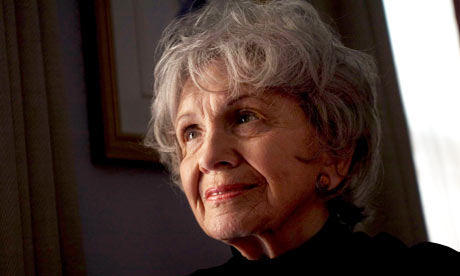I happened to notice this post on American Theatre‘s Facebook feed on a day when I was reading your posts reflecting on your experiences of the audience at the show. You all should consider submitting your responses on their page!
Category Archives: Dramaturgy Blog
Everyone is jumping on our coat … I mean stache-tails.
In today’s Chronicle, in addition to Mike’s lovely column in the Recess section, I couldn’t help but notice an article on Duke’s cross-country teams quest for a berth in the NCAA Championships but also perhaps a spot in the 2014 Beard and Mustache Championships. It made me wonder if we should challenge them to a stache-off. I mean in this picture there are some impressive examples but (in my humble opinion) our offerings are equally impressive .
With the NCAA Southeast Regional Championships looming this Friday and a berth for the NCAA Championships on the line, Duke has turned to a training technique that every runner knows well: growing mustaches.
What do you think?
Wait—what?
“The national championship is what we’re here to do. We’re here to run as fast as we can—but we’re here to do it in style,” said graduate student Mike Moverman, who sports a walrus mustache with a complementary chinstrap beard, a look he calls “the halfpipe.”
The phenomenon originated with the running website Flotrack.org, which has run a “Stachies for Nashies” photo competition in recent years. The setup is simple—run fast enough to qualify for the national cross-country meet (“Nashies”), grow a mustache, and document the lip lettuce to enter the online contest.
But while other teams halfheartedly grow top-shelf ticklers, the Blue Devils channel their inner Tom Selleck and use strategic timing to gain a leg up on their rivals.
“[Flotrack] tries to get us to do it from October through Nationals, which is usually Thanksgiving weekend,” Moverman said. “But my sophomore year we started taking it to the extreme. We started the first week of camp, a month and a half before all the other teams were starting.”
Breaking the rules. Making the rules.
I caught this quote board image in my Twitter feed last week. Though I believe Landau is referring to her work with devised theater, where the givens are largely negotiation among collaborators and the various texts they bring into the rehearsal room, I think the idea about the play-world being “an entirely new universe,” “invented from scratch” and “belonging to this piece and no other” is still applicable to processes that start with the givens of a published script.
As Jeff has mentioned multiple times in rehearsal, there are going to be very divergent opinions on this production and what we’ve “done” with Chekhov. But there’s a key preposition in that phrase, “done with Chekhov.” We have invested our attention into his words and the world they make possible in full view of acres of past productions all the way back to the first collaboration with MAT. We have taken our cues from that history and responded to the new, specific context of our production. There will be those who might call it sacrilege. There will be those for whom this production will be transformative. And even those for whom this production will be their first experience of the play/playwright. All we can do now is trust that the investments in textual study, historical research, physical training, and collaborative character building will pay off in ways we know, we hope, and we can answer for.
When I hear the sound of wind rustling in young trees
From the “See the Bigger Picture” visualization series by Vienna-based graphic designer Michael Paukner, the interwoven lines connect over 20 of the world’s oldest trees and clonal colonies to their geographic origins. I thought maybe I’d see some of these lines connect back to Russia but alas no.
And they act too!
At Duke Theater, our students do it all. Act, play musical instruments & sing, speak multiple languages, develop movement vocabularies AND build/paint sets. Yeah. Pretty awesome! (Thanks for taking some pictures, Sonya!)

From left to right Thomas Kavanagh, Nick Prey, Rory Eggleston, Sam Kebede, Ashley Long, and Faye Goodwin.
Yeesh, it looks ….
I don’t know if any of you have been in a Claire’s boutique or a Justice store geared to the Tween girl demographic but let me tell you that these places are filled with mustache tchotchkes and mustache branded jewelry, t-shirts, socks, duck tape(!), pencils and pencil holders … you get the picture. I’m not sure when, how or why this trend started but ever since we’ve been working on Vanya I’ve been reminded of Astrov’s “creep” assessment of his own persona, which includes “this huge mustache.” Maybe it’s the Steampunk aesthetic winding its way down the age ladder. I’ve not seen mustaches on the One Direction singers so it doesn’t seem to be driven by boy band love. And I think it’s too much to hope some pioneering marketer has embarked on a campaign to encourage young women to embrace a broader gender performance spectrum. Honestly I’m just stumped.
And just as I’d been pondering this and thinking about our own sharing of facial hair stories during rehearsal breaks, I found an examination of this “mustache moment” in a post on one of my favorite contemporary art blogs: Hyperallergic. In their piece they discuss the work of photographer Greg Anderson whose recent portraiture looks like this:

The epitome of all this, surely, is captured in the photography of Greg Anderson, which has been making the rounds on the internet recently. Anderson, who’s based in Las Vegas, traveled to New Orleans to photograph the 2013 Beard and Mustache Championships after missing the 2012 version in his hometown. “There were a few eccentric types,” he noted in an email with Hyperallergic — although he copied and pasted responses from another interview he had done — “but largely these are regular, down to earth guys who enjoy being a part of the bearding community and gathering once a year to see their friends and have a good time. It seems to be more about the camaraderie than the competition.”
More camaraderie than competition. Sounds just like all of you who are doing your best to grow those beards and mustaches for the show. So in your honor, and in honor of the grand and glorious beard/stache combo of our director, here is some more inspiration.
Very Chekhovian
A friend of mine posted a piece by the artist Robert Montgomery on her Facebook feed. I immediately thought of Uncle Vanya when I saw it. Please to enjoy.
Heart, Mind, Gut swag
No joke, I saw these illustrations by Emilee Beeson on Tumblr today and had to share! I see a possible logo for Uncle Vanya t-shirts! It also seemed a nice echo of the overall note we got from Kali after her Skype rehearsal attendance.
Contemporary Chekhovian writers in the news. With accolade and with sadness.
Last week, recently retired Canadian author Alice Munro became the 13th woman in the history of the 110 year-old award to win the Nobel Prize for Literature for her impeccably crafted short stories.

Photo of Munro by Andrew Testa to accompany the announcement of her 2009 win of the Booker International Prize.
Immediately, I was struck by the number of news reports announcing a win for “The Canadian Chekhov.” Here were some of the reasons given by other Canadian writers in an article in the Winnipeg Free Press.com for the moniker:
Munro has stayed in Canada throughout her career, and is beloved for writing about its culture, landscape and small-town characters in a way that makes them feel universal.
Quick note here — remember I’d noted a couple of rehearsals ago that Chekhov and Ibsen shared many parallels in their career paths? One very specific divergence was time spent working/writing abroad. Ibsen wrote many of his major plays (between 1862 and 1891) while living in Germany and then Italy serving a self-imposed exile from Norway whose theater community he felt did not adequately compensate his talent. Chekhov, by contrast and despite the benefit it might have been to his health, rarely traveled outside of Russia. From what I’ve read 1891 marks his first extended trip abroad to France and Italy. He returns to the south of France in 1897 for health reasons but does not make an extended stay or regular pilgrimages to warmer climes after that. While he moves from his country estate in Melikhovo to Yalta for his health in 1899, his tuberculosis worsens to a point where he is order by a doctor to go abroad. He finally makes that trip to Germany in 1904. It proves to be too late and he dies and returns home to Russia in a coffin.
[Munro’s] first collection of short stories, 1968’s “Dance of the Happy Shades,” won a Governor General’s Literary Award as did her ’78 collection “Who Do You Think You Are?”
Munro’s long list of honours also includes two Scotiabank Giller prizes and the Man Booker International Prize. Her fiction has also been regularly featured in the New Yorker, and her story “The Bear Came Over the Mountain” was adapted into Sarah Polley’s acclaimed film “Away From Her.”
“I think in some ways, the short story form that she uses almost belies her power,” said [David] Bergen. “She’s conquered the form, absolutely, and it’s immeasurable.
“A short story is incredibly difficult to write and also it takes up a lot of energy, and what has always amazed me about her is that when she puts 12 short stories into a collection, basically what she’s done is write 12 novels. And as a writer, you know that she’s taken up a lot of her power and focus and introspection to come to those stories.
“It must be draining, but she does it beautifully.”
[Joan] Barfoot recalled reading Munro’s “Lives of Girls and Women” when she was young and recognizing the spirit of the “rocky-souled” characters and geography.
“Her work does the whole world. It’s not Clinton-Wingham, or little places in B.C. It’s everywhere,” she said.
“She has a way of writing sentences that take a long time to read a short story, because you have to stop every other sentence and say, ‘Ah’ to yourself. She writes very capacious short stories.
“I’ve written several novels that could fit nicely into one of her short stories, probably. They are impeccable.”
[Wayson] Choy said he was first introduced to Munro in the ’60s at the creative writing school at the University of British Columbia and “could tell that this was only the beginning.”
“I just had that feeling. You read one story of hers and you think you’ve read a novel,” he said.
“The characters become one complete and collected community, and that’s the community of neighbours and people we know.
“She truly is our Chekhov.”
If you’ve never read any of Munro’s work, some stories to start with include “Lives of Women and Girls” (1971), “The Love of a Good Woman” (1998), and “Dimension” (2006).
On a sadder note, another writer, this one who was a Professor of English and the Blackburn Writer in Residence at Duke (brought to the university through the suggestion of Theater Studies’ own Professor Michael Malone) and who unexpectedly this weekend at the age of 62.
Oscar Hijuelos, the first Latino author to win the Pulitzer Prize for fiction (for his 1989 novel The Mambo Kings Play Songs of Love), was remembered in today’s The New York Times, which quoted Michiko Kakutani’s review of that award-winning novel with this passage:
Indeed, Oscar Hijuelos’s remarkable new novel is another kind of American story — an immigrant story of lost opportunities and squandered hopes. While it dwells in bawdy detail on Cesar’s sexual escapades, while it portrays the musical world of the ’50s in bright, primary colors, the novel is essentially elegiac in tone — a Chekhovian lament for a life of missed connections and misplaced dreams.
Kakutani is a critic who continues to see Chekhov in Hijuelos’ work, writing in a 2002 review of his A Simple Habana Melody.
Like so many of Oscar Hijuelos’s lovelorn, melancholy people, Israel Levis, the hero of ”A Simple Habana Melody (From When the World Was Good),” is a Chekhovian character, haunted by missed connections and unfulfilled dreams. He also emerges as a spiritual cousin of the two brothers in the author’s Pulitzer-Prize winning 1989 novel, ”The Mambo Kings Play Songs of Love”: like Nestor Castillo, he is a shy, introspective man, holding a torch for a woman from his long-ago past; like Cesar Castillo, he eventually misplaces his love of music and his love of pleasure, allowing regrets to define his life.
Dean Patton sent out a note marking Professor Hijuelos‘ passing that notes the flags in front of the Allen Building will fly at half mast this next week in his honor. Like Chekhov he is gone much too soon. Like Chekhov we are blessed with a treasure trove of his work that will live on and on.














